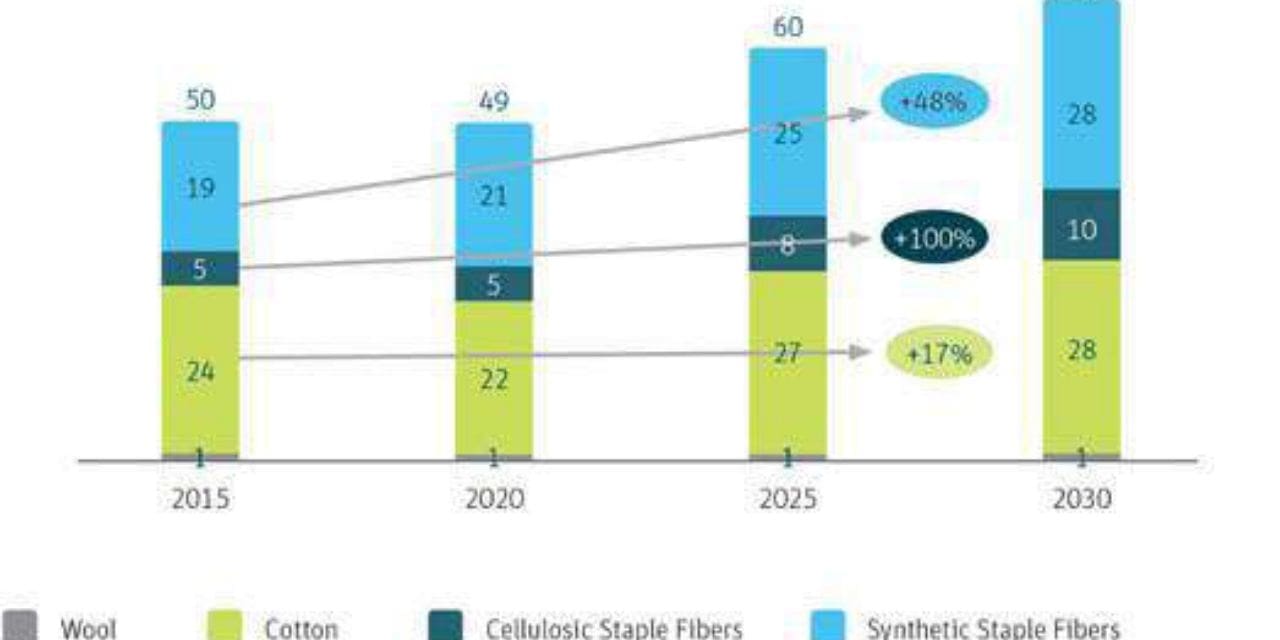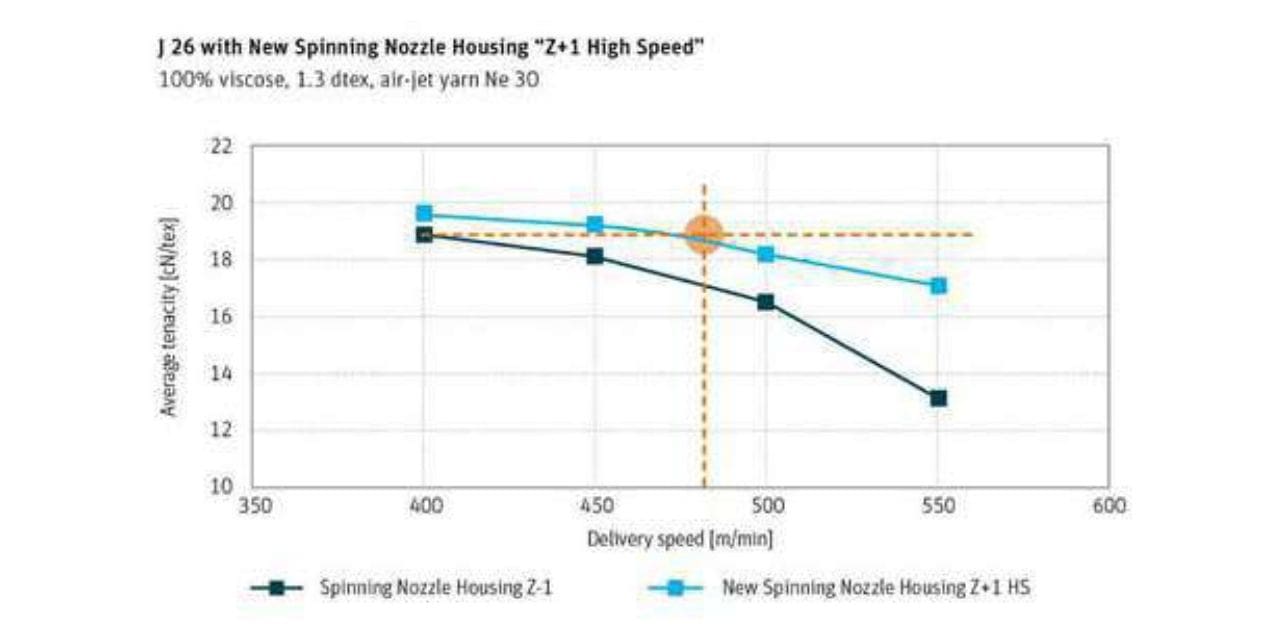Fibre consumption is on the rise, and man-made fibres play an important role in this. The consumption of cellulose fibres is growing the fastest and, due to their attractive properties, they are appreciated by spinning mills, downstream processing, and end users. The air-jet spinning machine J 26 offers new solutions for processing viscose with high productivity and quality.
As population growth and prosperity increases, so does the consumption of fibres across the globe. While this holds true for all staple fibres, the use of man-made fibres such as cellulosic staple fibres and synthetic staple fibres is growing particularly quickly. The consumption of cellulosic staple fibres is expected to double to 10 million tons by 2030 while the consumption of synthetic staple fibres is expected to grow by 48% to 28 million tons compared to 2015 (Fig. 1). Rieter addresses these market needs and continuously develops special technology components and solutions for man-made fibres and blends for all end spinning processes.
Air-jet spinning strong in viscose
Air-jet spinning is the dominant choice for processing cellulosic fibres – mainly viscose – and their blends with cotton. The high productivity and the low yarn conversion costs of viscose make it an attractive raw material for spinning mills. Along with its special properties, like less fluff and fly in knitting and weaving, it is also popular in downstream industries. End users particularly appreciate the excellent pilling resistance and wash resistance of the finished products.

J 26 with new features
The air-jet spinning machine J 26 offers several unique features for processing viscose. The new spinning nozzle housing “Z+1 High Speed” with a reshaped fibre feeding element ensures high yarn tenacity and production speed at the same time. The delivery speed can be increased to 480m/min for 100% viscose Ne 30 without a loss in yarn quality. With 19 cN/tex, the yarn strength is the same as with the existing “Z-1” housing with a 17% lower delivery speed of 400 m/min (Fig. 2). This reduces the yarn conversion costs because the air pressure for twisting remains the same ata higher production speed. The J 26 is also well suited for processing blends with polyester: cotton with a proportion of up to 50% polyester and viscose with a proportion of up to 80% polyester.

Simplified handling and easy operation
In addition to increased productivity, the operation has been simplified thanks to the option of opening the housing of the spinning nozzle. This means the nozzle and the housing can be cleaned easily and effectively without having to remove the ceramic spinning tip (Fig. 3). This results in fewer red lights and a reduced workload for operators. Spinning mills report a 50% reduction in operating time per event and red lights that are active for only 5 to 11 seconds compared to 25 to 45 seconds with a closed spinning nozzle housing.
Best package quality for downstream processes
The J 26 offers pneumatic package damping for uniform package quality and efficient unwinding for downstream processes. Packages containing man-made fibres, especially viscose, tend to be very hard with even harder edges. This results in an unwinding that is unstable and brings about yarn breaks. To prevent the yarn from breaking, the density is kept consistent over the complete package build-up. The unique stroke respiration softens the edges ‒ which is the secret for best unwinding performance. The optimized winding enables a 20% higher package weight with man-made fibres at the same diameter. This results in higher machine efficiency thanks to 20% fewer doffings. Weaving and knitting machines also benefit from less handling and less stops.
An overview of all solutions for man-made fibres in the Rieter system, from theblowroom to all four end spinning processes, can be found on rieter.com Rieter is the world’s leading supplier of systems for short-staple fibre spinning. Based in Winterthur (Switzerland), the company develops and manufactures machinery, systems and components used to convert natural and man-made fibres and their blends into yarns. Rieter is the only supplier worldwide to cover both spinning preparation processes and all four end-spinning processes currently established on the market. Furthermore, Rieter is a leader in the field of precision winding machines. With 15 manufacturing locations in 10 countries, the company employs a global workforce of some 4 400, about 20% of whom are based in Switzerland. Rieter is listed on the SIX Swiss Exchange under ticker symbol RIEN.

